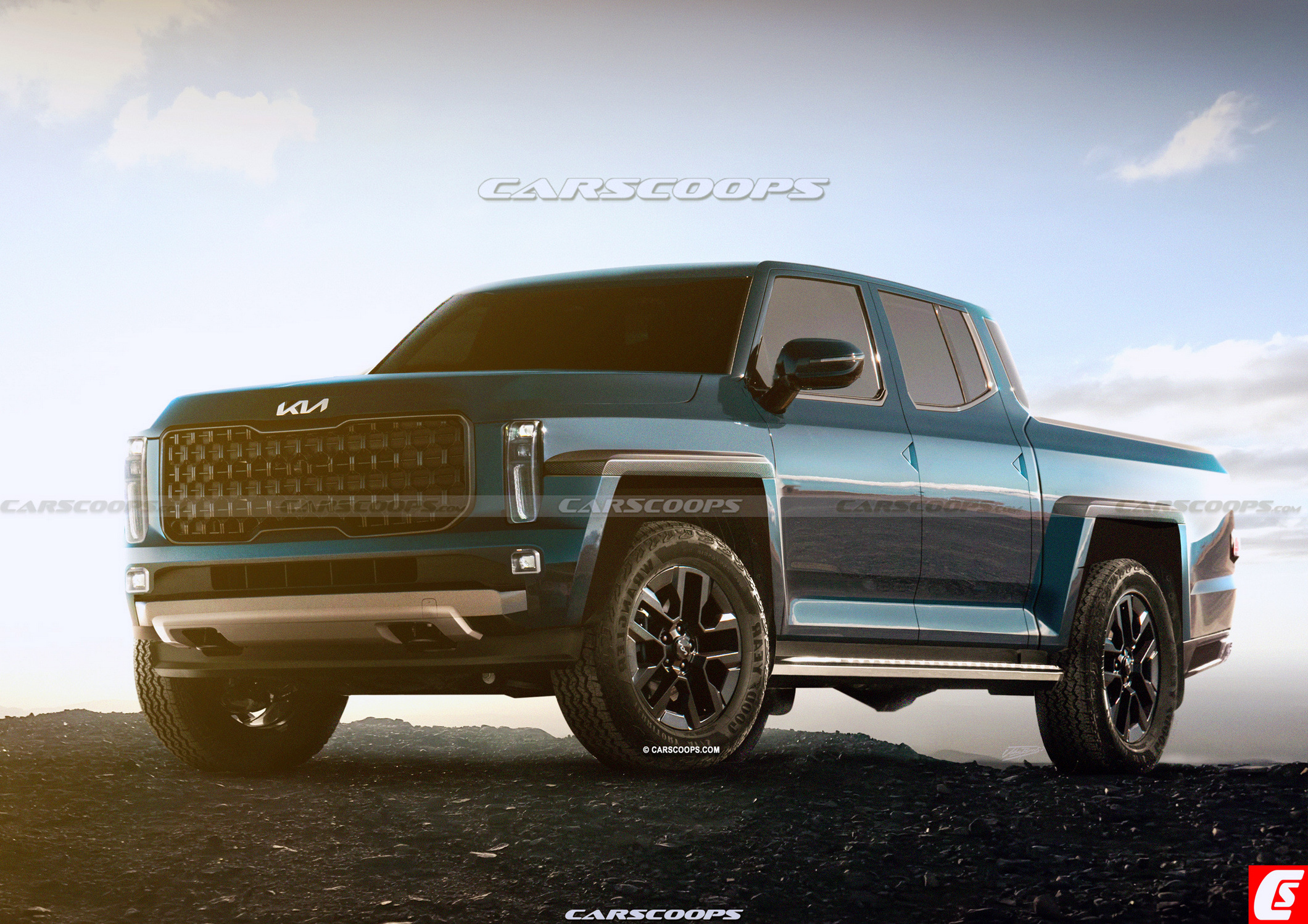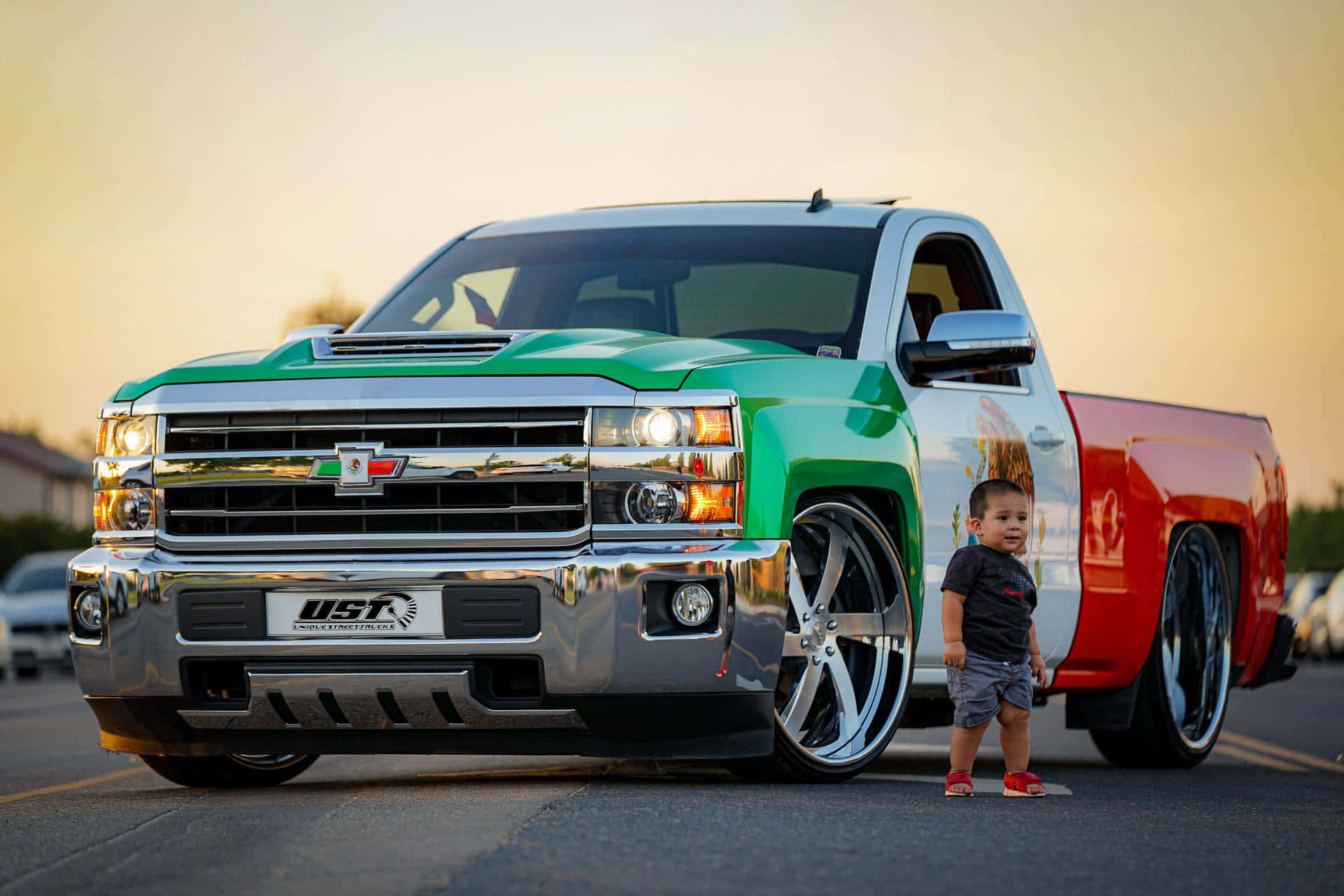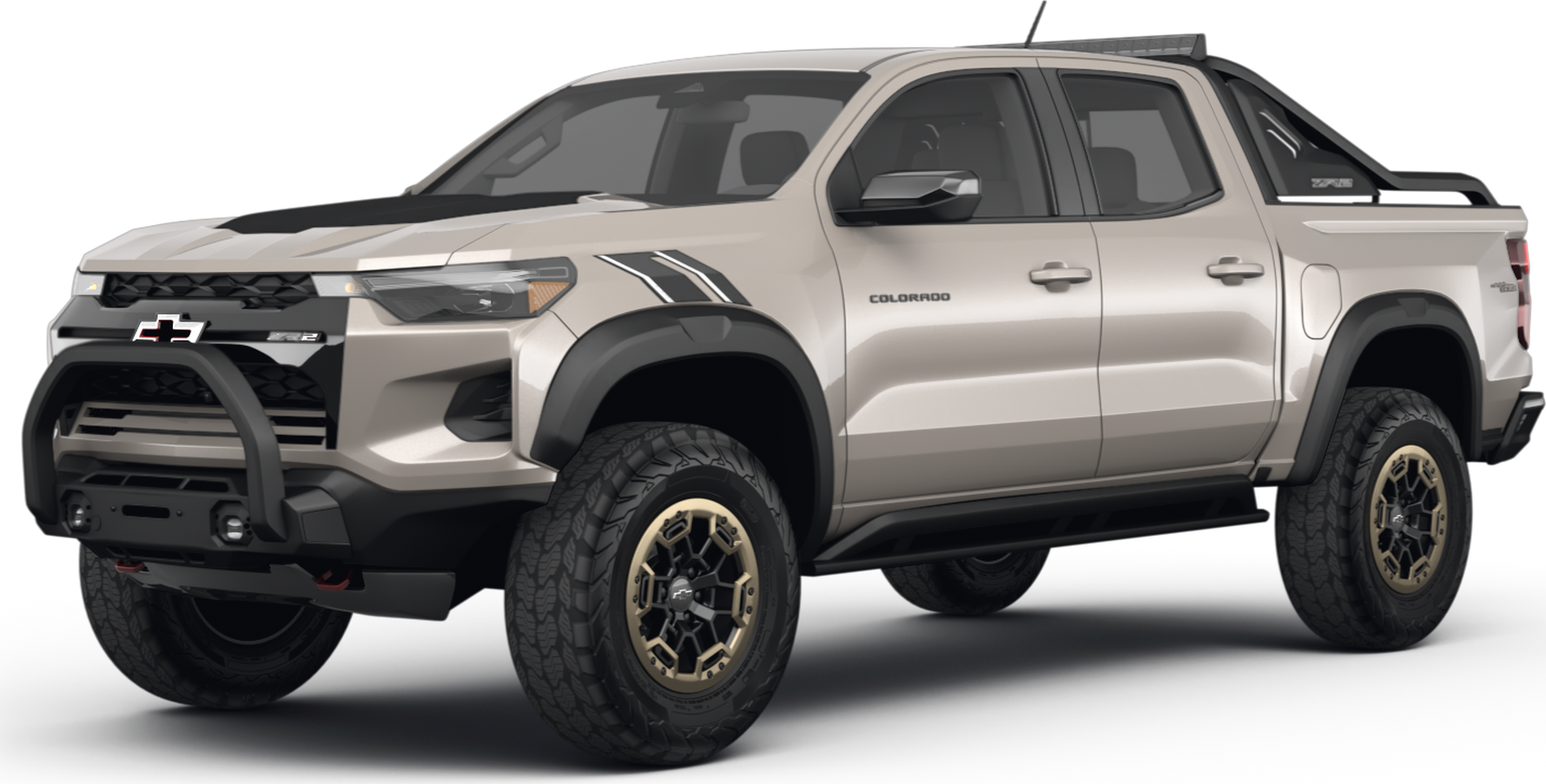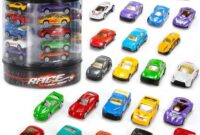Pickup Trucks For Sale Under $4000: Your Comprehensive Guide to Affordable Utility pickup.truckstrend.com
In a world where new vehicle prices seem to climb relentlessly, the idea of finding a reliable pickup truck for under $4000 might sound like a pipe dream. However, for the discerning buyer willing to put in some effort, navigate the used market wisely, and embrace a dose of realism, this budget segment offers a surprising array of utilitarian workhorses. These aren’t just relics; for many, a sub-$4000 pickup represents an accessible entry point into truck ownership, providing essential utility for hauling, towing, home projects, or even serving as a dependable daily driver without breaking the bank.
This comprehensive guide is designed to help you navigate the landscape of affordable trucks. We’ll delve into what to expect, where to look, how to assess potential candidates, and what steps to take to ensure your hard-earned money secures a vehicle that meets your needs without becoming a money pit. Prepare to manage your expectations, sharpen your investigative skills, and discover that a functional, robust pickup truck is indeed within your grasp.
Pickup Trucks For Sale Under $4000: Your Comprehensive Guide to Affordable Utility
The Reality of the Under $4000 Market: Setting Realistic Expectations
Before you embark on your search, it’s crucial to understand what $4000 buys you in the used truck market. You’re not going to find a low-mileage, late-model, perfectly pristine vehicle. Instead, you’ll be looking at:
- Older Models: Expect trucks from the late 1990s, early 2000s, or even older. These vehicles often have simpler mechanics, which can be a boon for DIY repairs.
- Higher Mileage: Most trucks in this price range will have well over 150,000 miles, with many pushing past 200,000 or even 250,000 miles. Don’t let high mileage alone scare you; a well-maintained high-mileage truck can be far more reliable than a neglected lower-mileage one.
- Cosmetic Imperfections: Dings, dents, scratches, faded paint, interior wear and tear, and some rust are common. These are typically battle scars from years of use, and while they might not look pretty, they don’t necessarily impact functionality.
- Basic Features: Forget touchscreens, heated seats, or advanced safety features. These trucks will be utilitarian, focusing on engine, transmission, and drivetrain.
- Potential for Immediate Repairs: It’s wise to budget an additional $500-$1000 for immediate maintenance or minor repairs after purchase. This could include new tires, brakes, fluids, or addressing minor issues found during inspection.

The goal here isn’t to find a show truck, but a work truck. Focus on mechanical soundness, frame integrity, and the core utility it offers.
Identifying Potential Candidates: Top Brands & Models to Target

Certain truck models are more likely to appear in the sub-$4000 price bracket due to their age, widespread availability, and reputation for durability. Here are some common contenders:
- Ford F-Series (F-150, F-250): The F-Series has been America’s best-selling truck for decades. Older F-150s (especially 9th, 10th, and early 11th generations) and F-250s (for heavier duty) are abundant. Look for the 4.9L inline-six or 5.0L/5.4L V8 engines, known for their robustness.
- Common Issues: Rust (especially on older models), exhaust manifold leaks, spark plug issues (5.4L Triton), some transmission quirks.

- Chevrolet Silverado / GMC Sierra (C/K Series): Similar to Ford, older Chevy and GMC full-size trucks (often badged as C/K 1500, 2500, etc., before the Silverado/Sierra name became prominent) are great options. The 5.3L Vortec V8 is a strong, reliable engine.
- Common Issues: Rust (rocker panels, cab corners), fuel pump issues, instrument cluster failures, transmission fluid cooler lines.
- Dodge Ram (1500, 2500): Older Ram trucks, particularly those with the 5.2L or 5.9L Magnum V8 engines, are often available. They offer robust towing and hauling capabilities.
- Common Issues: Rust (fenders, bedsides), dashboard cracking, transmission issues (especially 46RE/47RE), steering components.
- Ford Ranger / Mazda B-Series: These compact trucks are excellent for lighter duty work, fuel efficiency (relative to full-size), and easier maneuverability. The 2.3L 4-cylinder and 3.0L/4.0L V6 engines are common.
- Common Issues: Rust (frame, bed), timing chain guides (4.0L), automatic transmission issues, spark plug access (4.0L).
- Chevrolet S-10 / GMC Sonoma: Another compact option, similar in purpose to the Ranger. Available with 2.2L 4-cylinder or 4.3L V6 engines.
- Common Issues: Fuel pump, rust, intake manifold gaskets (4.3L), worn steering components.
- Toyota Tacoma / Tundra (Older Models): While notoriously holding their value, very high-mileage or older (late 90s/early 2000s) Tacomas and Tundras can occasionally be found under $4000. Their legendary reliability makes them highly sought after.
- Common Issues: Frame rust (critical inspection point!), lower ball joints, minor electrical issues. If you find one under $4k, be very quick and thorough.
- Nissan Frontier (Older Models): Another sturdy Japanese compact/mid-size option that can sometimes sneak into this price range.
- Common Issues: Frame rust, fuel gauge sender, timing chain issues (V6).
When considering these models, research their specific common issues for the relevant year range. This knowledge will empower you during your inspection.
Where to Find Pickup Trucks Under $4000
Finding these budget-friendly trucks requires casting a wide net and knowing where to look:
-
Online Marketplaces:
- Facebook Marketplace: Often the best starting point. Many private sellers list vehicles here. You can filter by price, location, and vehicle type.
- Craigslist: Still a strong contender for private sales, especially in larger metropolitan areas. Be prepared for less organized listings but potentially good deals.
- OfferUp/LetGo (now combined): Similar to Facebook Marketplace, good for local private sellers.
- eBay Motors: Less common for true "under $4000" deals, but worth checking, especially for "Buy It Now" or auction listings nearing the end.
-
Local Dealerships (Used Car Lots):
- Many smaller, independent used car lots will have a "bargain" or "as-is" section. These are often older trade-ins that don’t fit their primary inventory. While they might have been quickly cleaned up, they typically aren’t thoroughly reconditioned, which is why they’re priced low.
- Pro Tip: Larger dealerships might have a dedicated "value lot" or partner with a smaller lot for their cheaper trade-ins.
-
Private Sellers:
- Beyond online platforms, check local bulletin boards, word-of-mouth networks, or even "For Sale" signs in truck windows. These can sometimes yield hidden gems from owners who aren’t tech-savvy or just want a quick sale.
-
Auctions:
- Public/Government/Police Auctions: Vehicles seized or retired from municipal fleets. Can offer great deals, but usually sold "as-is" with no test drives or detailed inspections allowed beforehand. High risk, high reward.
- Salvage Auctions: Primarily for vehicles with significant damage (flood, accident). Unless you’re a mechanic or body shop, avoid these.
Tips for Searching: Use broad search terms initially (e.g., "pickup truck," "work truck") and then narrow by specific models once you get a feel for what’s available. Filter by price, mileage (if available), and distance. Be prepared to travel a bit for the right deal.
The Buying Process: A Step-by-Step Guide to Smart Acquisition
Buying a sub-$4000 truck is less about convenience and more about diligence.
-
Budgeting & Financial Considerations Beyond Purchase Price:
- Insurance: Get quotes before you buy. Older trucks can sometimes be cheaper to insure, but rates vary widely.
- Registration & Taxes: Factor in state-specific fees, title transfer costs, and sales tax.
- Immediate Repairs/Maintenance: As mentioned, budget $500-$1000 for initial tune-ups, fluid changes, or addressing minor issues.
- Fuel: Older trucks are generally less fuel-efficient.
-
Initial Screening & Communication:
- When you find a promising listing, don’t just show up. Contact the seller. Ask specific questions:
- Why are they selling?
- How long have they owned it?
- What’s the maintenance history like? (Receipts are a huge plus).
- Are there any known mechanical issues, warning lights, or leaks?
- Has it been in any accidents?
- Is the title clean and in their name?
- If they’re evasive or unwilling to answer, move on.
- When you find a promising listing, don’t just show up. Contact the seller. Ask specific questions:
-
The Pre-Purchase Inspection (PPI): Crucial for Older Vehicles
- Your Own Inspection (Initial Walkthrough):
- Rust: Check the frame (especially near suspension mounts), cab corners, rocker panels, bed, and wheel wells. Surface rust is common; severe, perforating rust is a deal-breaker.
- Fluids: Check oil (color, level), transmission fluid (color, smell), coolant. Look for leaks under the vehicle.
- Tires: Check tread depth and even wear. Uneven wear can indicate alignment or suspension issues.
- Lights/Electrical: Test all lights, wipers, horn, radio, power windows (if equipped).
- Engine Bay: Look for unusual modifications, loose wires, cracked hoses, or signs of rodent damage.
- Interior: Check seats, dashboard, and floor for excessive wear, tears, or water damage.
- Professional Mechanic Inspection: This is the single most important step. For $100-$200, a trusted mechanic will put the truck on a lift, check for major mechanical issues (engine, transmission, brakes, suspension, exhaust, frame integrity), and identify potential problems. If a seller refuses a PPI, walk away. Period.
- Your Own Inspection (Initial Walkthrough):
-
The Test Drive:
- Drive the truck on various road types: city streets, highway, and if possible, a bumpy road.
- Pay attention to:
- Engine: Does it start easily? Any strange noises (knocking, ticking, grinding)? Does it accelerate smoothly?
- Transmission: Does it shift smoothly without hesitation, slipping, or harsh thumps? Test all gears, including reverse.
- Brakes: Do they feel firm? Any grinding, squealing, or pulling to one side?
- Steering: Does it feel tight or loose? Any excessive play? Does it pull to one side?
- Suspension: Any clunks, squeaks, or excessive bouncing over bumps?
- Warning Lights: Are any check engine, ABS, or airbag lights illuminated after starting?
-
Vehicle History Report (VHR):
- For a small fee (CarFax, AutoCheck), you can get a report on the vehicle’s past. This can reveal accidents, flood damage, salvage titles, odometer discrepancies, and service history. Even for older trucks, this can save you from a nightmare.
-
Negotiation:
- Use any issues found during your inspection (even minor ones) as leverage to negotiate the price down. Be polite but firm. Many sellers have wiggle room, especially if they want a quick sale.
- Knowing the market value for similar trucks in your area helps.
-
Paperwork & Payment:
- Ensure the seller has a clean title in their name, free of liens. Verify the VIN on the title matches the truck.
- Bill of Sale: Create a written bill of sale that includes the VIN, make, model, year, purchase price, date, and signatures of both buyer and seller. State "as-is" to protect both parties.
- Payment: Use a secure method like a cashier’s check or bank transfer. Avoid carrying large sums of cash.
- Registration: Immediately transfer the title and register the vehicle in your name according to your state’s DMV requirements.
Common Issues and What to Expect After Purchase
Even with a thorough inspection, buying an older truck means accepting the likelihood of future maintenance. Common issues for trucks in this age/price range include:
- Rust: It’s a persistent enemy. Address surface rust promptly to prevent it from spreading. Check brake lines and fuel lines for rust.
- Suspension Components: Bushings, ball joints, tie rods, and shocks wear out over time, leading to loose steering, clunks, and poor ride quality.
- Exhaust System: Mufflers, pipes, and catalytic converters can rust through or fail.
- Fluid Leaks: Power steering, oil, transmission, and coolant leaks are common. Some are minor, others indicate bigger problems.
- Electrical Gremlins: Frayed wires, failing sensors, or dashboard lights can be annoying to diagnose.
- Brakes: Calipers, rotors, and pads will eventually need replacement. Check brake lines for rust.
- Engine/Transmission: While the core components can be robust, accessory items like water pumps, alternators, and starters have finite lifespans. Transmissions, especially automatics, can be a weak point if not properly maintained.
Maintenance Fund: Always keep a dedicated fund for unexpected repairs. This is crucial for keeping an older truck running reliably. Learning basic DIY maintenance (oil changes, fluid checks, filter replacements) can save you significant money.
Maximizing Your Under $4000 Truck
Once you’ve secured your budget-friendly pickup, you can maximize its utility and longevity:
- Basic Maintenance is Key: Stick to a regular schedule for oil changes, fluid checks (transmission, differential, coolant, brake fluid), tire rotation, and filter replacements (air, fuel, cabin). This is the cheapest way to extend your truck’s life.
- Understand Its Limits: While a full-size truck might have a high tow rating when new, an older, high-mileage truck should be used within more conservative limits. Don’t over-load or over-tow.
- Rust Prevention: Wash your truck regularly, especially if you live in an area with road salt. Consider applying undercoating or rust inhibitors.
- Budget-Friendly Upgrades:
- Bed Liner: Protects the bed from damage. Drop-in or spray-in options.
- Toolbox: Adds secure storage.
- Basic Audio System: Upgrade the head unit for Bluetooth and modern connectivity.
- LED Lighting: Brighter, more efficient headlights or auxiliary lights can be a great, inexpensive improvement.
- Seat Covers/Floor Mats: Protect the interior from further wear and tear.
Example Price Table: Pickup Trucks Under $4000 (Illustrative)
Disclaimer: Prices, year ranges, and common issues are highly variable based on location, condition, mileage, and specific market demand. This table is for illustrative purposes only and does not guarantee availability or exact pricing.
| Model (Example Generation) | Typical Year Range | Expected Price Range (USD) | Common Issues at this Price Point | Notes & Best Use Cases |
|---|---|---|---|---|
| Ford F-150 (10th Gen) | 1997-2003 | $2,500 – $4,000 | Rust (fenders, cab corners), spark plug issues (5.4L), exhaust manifold leaks. | Great workhorse, readily available parts, good for general hauling/towing. |
| Chevy C/K 1500 / Silverado (GMT400/800) | 1995-2005 | $2,000 – $4,000 | Rust (rockers, cab corners), fuel pump, instrument cluster, steering components. | Reliable Vortec engines, comfortable ride, good for daily driving & projects. |
| Dodge Ram 1500 (2nd Gen) | 1994-2001 | $1,800 – $3,500 | Dashboard cracking, transmission issues, rust (fenders/bedsides). | Bold styling, powerful V8s, capable hauler if transmission is solid. |
| Ford Ranger (3rd Gen) | 1998-2011 | $2,000 – $4,000 | Frame rust, timing chain guides (4.0L), auto transmission issues. | Excellent compact utility, easier to park, good fuel economy for light duty. |
| Chevy S-10 (2nd Gen) | 1994-2004 | $1,500 – $3,000 | Fuel pump, intake manifold gaskets (4.3L), rust. | Simple, maneuverable, great for urban work or smaller loads. |
| Toyota Tacoma (1st Gen) | 1995-2004 | $3,000 – $4,000+ | CRITICAL: Frame rust, lower ball joints. (Often closer to $5k even for rough ones) | Legendary reliability, holds value, hard to find under $4k unless very high mileage/rough. |
Frequently Asked Questions (FAQ)
Q1: Is it truly possible to find a decent pickup truck for under $4000?
A1: Yes, it is possible, but it requires patience, realistic expectations, and diligent inspection. "Decent" means mechanically sound and functional, not cosmetically perfect or low mileage.
Q2: What kind of mileage should I expect on a truck under $4000?
A2: Most trucks in this price range will have 150,000 miles or more, often exceeding 200,000. Focus more on maintenance history and mechanical condition than just the odometer reading.
Q3: Should I buy from a private seller or a dealer for this price range?
A3: Private sellers often offer lower prices and more negotiation room, but vehicles are usually sold "as-is" with no warranty. Smaller used car dealers might offer slightly higher prices but could have done some basic reconditioning. Always get a Pre-Purchase Inspection (PPI) regardless of the seller.
Q4: What are the most reliable brands/models to look for in this price range?
A4: Ford F-Series, Chevrolet Silverado/C/K, and Dodge Ram (especially with the larger V8s) are plentiful and known for durability. Toyota Tacoma/Tundra are exceptionally reliable but very hard to find under $4000 due to their strong resale value. Compact trucks like the Ford Ranger and Chevy S-10 are also good bets.
Q5: What immediate costs should I budget for after buying a truck under $4000?
A5: Beyond the purchase price, budget for title transfer, registration, sales tax, insurance, and an additional $500-$1000 for immediate maintenance (oil change, fluids, filters) or minor repairs identified during the inspection.
Q6: Can I use a sub-$4000 truck for heavy work or towing?
A6: While many of these older trucks were built for heavy duty, it’s wise to use them within conservative limits given their age and mileage. Always check the specific truck’s Gross Vehicle Weight Rating (GVWR) and Gross Combined Weight Rating (GCWR), and assess its overall condition before attempting heavy loads or towing. Regular maintenance is crucial.
Q7: How important is a pre-purchase inspection (PPI)?
A7: Extremely important. It’s the most critical step. A professional mechanic can identify major issues (frame rust, engine/transmission problems, critical leaks) that could turn your "deal" into a financial nightmare. Never skip it.
Conclusion: Your Affordable Path to Truck Ownership
Finding a pickup truck for sale under $4000 is not a myth; it’s a realistic goal for those who approach the process with a clear strategy and an understanding of the used vehicle market. While these trucks may not boast the latest technology or pristine aesthetics, they offer unparalleled utility and a gateway to truck ownership for individuals and small businesses on a budget.
Success in this price bracket hinges on thorough research, diligent inspection (especially the crucial Pre-Purchase Inspection), and realistic expectations about what an older, high-mileage vehicle entails. By focusing on mechanical soundness over cosmetic perfection, understanding common issues, and budgeting for initial maintenance, you can secure a reliable workhorse that serves your needs for years to come. Your affordable pickup truck is out there, ready to tackle your projects and adventures without breaking the bank.



